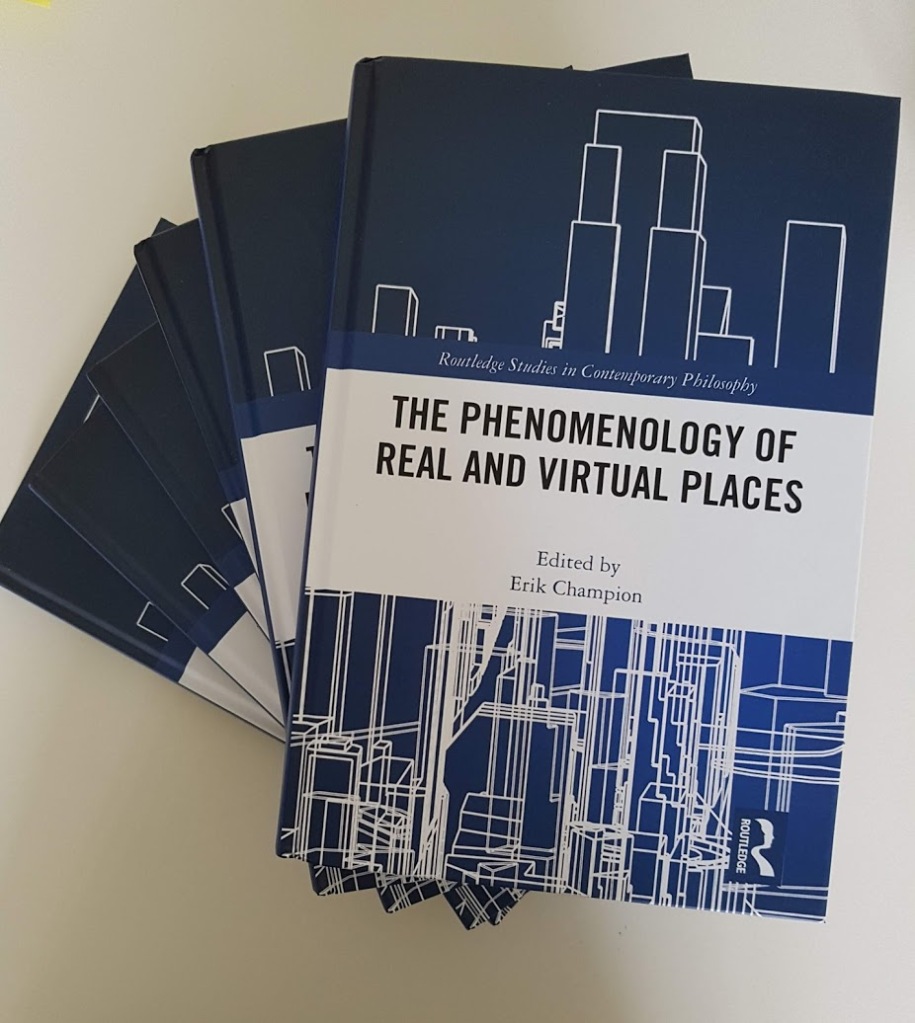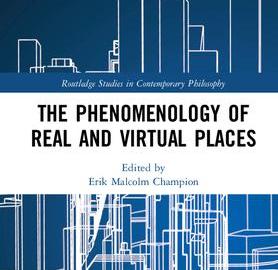Phenomenology, Place and Virtual Place: can phenomenology help us convey and understand the ‘virtual place’ experience?
I am seeking 3-5 chapters for an edited book on the history, implications and usefulness of phenomenology for real places and virtual places, with chapters by philosophers, cultural geographers, architects and archaeologists.
Main themes:
1 Phenomenology, definitions, main concepts, historical interpretations.
2 Critical reviews of phenomenology, successes failures and lessons learnt.
3 Strengths and weaknesses of phenomenology compared to other methods.
4 Context-specific and discipline-specific applications of phenomenology applied to place.
5 Particular place-centric phenomenological investigations, issues and applications.
6 Phenomenology applied to virtual places.
There are currently seven proposed authors (see below) but I am aiming to include three to five more authors though an open call for abstracts. Topic 3 is still to be addressed (as well as, to some extent, Topic 2) so I would be particularly happy to receive abstract/chapter submissions on these two topics. You may also notice we currently only have male authors, I asked four leading female writers/philosophers and they were all busy so I would be very happy for a wider and more inclusive spread of perspectives.
Current Proposed Chapters
Introduction by Distinguished Professor Jeffrey Malpas, University of Tasmania.
1 Phenomenology’s Preoccupations and Place, Professor Bruce Janz, University of Central Florida, United States of America.
2 An Encumbering, Confining Reality: Comparing and Contrasting Real Reality and Real Places with Virtual Reality and Virtual Places, Professor David Seamon, Kansas State University.
3 The Inconspicuous Familiarity of Landscapes, Professor Ted Relph, Emeritus Professor University of Toronto.
4 Heidegger’s Bauen, Wohnen, Denken in terms of Minecraft, Dr. Tobias Holischka, Katholische Universität Eichstätt-Ingolstadt
5 Attention in virtual reality, Professor Richard Coyne, University of Edinburgh
6 Hermeneutics, Horizon and ‘Sense of Place’ Affordances in Virtual Environments, Professor Erik Champion, Curtin University
7 Using Mixed Reality to undertake archaeological phenomenology, Dr Stuart Eve, University of York
Typical book chapter length: 5,000–8,000 words
Philosophical emphasis: Yes as it is intended to be part of a series in Phenomenology (Philosophy) this will be a factor. However I would also be happy to receive submissions from writers with overlapping interests.
Current Status of Proposal: Have discussed with the editor of Routledge Research in Phenomenology and the book proposal will be sent to him for review when I have approximately 10-12 authors. We currently have seven authors.
Submission: by email or attached word or RTF document, approximately 300-500 words.
Deadline for chapter abstracts: Sunday 7 February 2016.
Deadline for draft chapters: Good question but I don’t know! I would probably aim for September 2016.
Email your abstract to: erik DOT champion AT Curtin edu au




